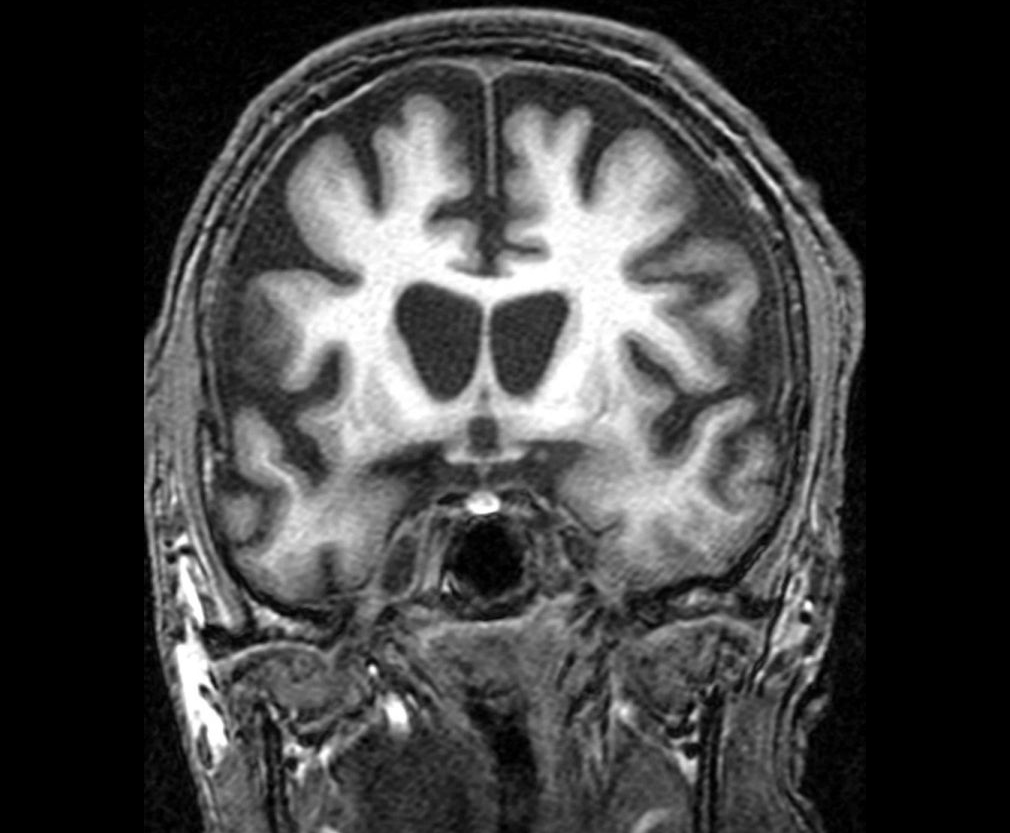Roche exercised its option to license Ionis Pharmaceuticals’ Huntington’s disease (HD) antisense drug candidate IONIS-HTTRX on the back of what have been called “groundbreaking” results from a placebo-controlled Phase I/IIa dose-escalation study. Roche is paying $45 million upfront for the license and will shoulder all continued development and commercialization activities for IONIS-HTTRX for the HD indication. Ionis will be eligible to receive undisclosed milestones and sales royalties.
HD is a rare, genetic, progressive neurodegenerative disorder that affects about 30,000 individuals in the U.S. An additional 200,000 people are at risk of having inherited the triplet-repeat mutation, which results in production of a mutant huntingtin (mHTT) protein that gradually destroys neurons in the brain. Symptoms usually start at 30 to 50 years of age and progress over 10 to 25 years until the patient dies from pneumonia, heart failure, or other complications. There is no effective disease-modifying treatment for HD, and therapy is based on managing disease symptoms.
IONIS-HTTRX is the first clinical-stage HD therapy designed to reduce production of all forms of mHTT. The Phase I/IIa study demonstrated that treatment led to dose-dependent reductions in mHTT levels. “The results of this trial are of groundbreaking importance for Huntington's disease patients and families,” claims Sarah Tabrizi, Ph.D., professor of clinical neurology, director of the University College London's Huntington Centre and the global lead investigator on the Phase I/IIa study. “For the first time, a drug has lowered the level of the toxic disease-causing protein in the nervous system, and the drug was safe and well tolerated. The key now is to move quickly to a larger trial to test whether IONIS-HTTTRX slows disease progression.”
Ionis and Roche expect to present the study data at conferences during the first half of 2018 and also plan to submit the data for publication. The firms have already started an open-label extension study for patients who completed the Phase I/IIa trial.
“We are encouraged by the performance of IONIS-HTTRx in the Phase I/IIa clinical study,” comments C. Frank Bennett, Ph.D., SVP for research at Ionis. “The dose-dependent reductions of mHTT we observed in the study substantially exceeded our expectations, and we were equally encouraged by the safety profile of the drug.”
Ionis is developing a clinical pipeline of antisense drugs for treating rare disorders, cardiovascular disease, cancer, and other disorders, both in-house and through industry partnerships. The firm’s flagship therapy Spinraza® (nusinersen) was approved by the FDA in December 2016 for treating spinal muscular atrophy (SMA) and is commercialized by Biogen.
Last month, the Ionis affiliate Akcea Therapeutics confirmed that its marketing applications for the antisense drug volanesorsen had been accepted by regulators in the U.S., Europe, and Canada, for treating familial chylomicronemia syndrome. The FDA has set the Prescription Drug User Fee Act date for August 30, 2018.
Also last month, Ionis submitted marketing authorization applications to FDA and the European regulators for its antisense drug candidate inotersen, which has been developed for treating hereditary transthyretin-related hereditary (TTR) amyloidosis. Just yesterday, Alnylam Pharmaceuticals confirmed that it had similarly completed the submission of a rolling New Drug Application (NDA) to the FDA for its TTR amyloidosis RNA interference (RNAi) candidate patisiran, which is partnered with Sanofi Genzyme. Data from a Phase III patisiran study were reported last month.


